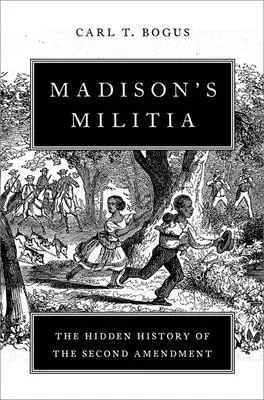This engaging history overturns the conventional wisdom about the
Second Amendment--showing that the right to bear arms was not about
protecting liberty but about preserving slavery.
In Madison's Militia, Carl Bogus illuminates why James Madison and the
First Congress included the right to bear arms in the Bill of Rights.
Linking together dramatic accounts of slave uprisings and electric
debates over whether the Constitution should be ratified, Bogus shows
that--contrary to conventional wisdom--the fitting symbol of the Second
Amendment is not the musket in the hands of the minuteman on Lexington
Green but the musket wielded by a slave patrol member in the South.
Bogus begins with a dramatic rendering of the showdown in Virginia
between James Madison and his federalist allies, who were arguing for
ratification of the new Constitution, and Patrick Henry and the
antifederalists, who were arguing against it. Henry accused Madison of
supporting a constitution that empowered Congress to disarm the militia,
on which the South relied for slave control. The narrative then proceeds
to the First Congress, where Madison had to make good a congressional
campaign promise to write a Bill of Rights--and seizing that opportunity
to solve the problem Henry had raised.
Three other collections of stories--on slave insurrections,
Revolutionary War battles, and the English Declaration of Rights--are
skillfully woven into the narrative and show how arming ragtag militias
was never the primary goal of the amendment. And as the puzzle pieces
come together, even initially skeptical readers will be surprised by the
completed picture: one that forcefully demonstrates that the Second
Amendment was intended in the first instance to protect slaveholders
from the people they owned.

